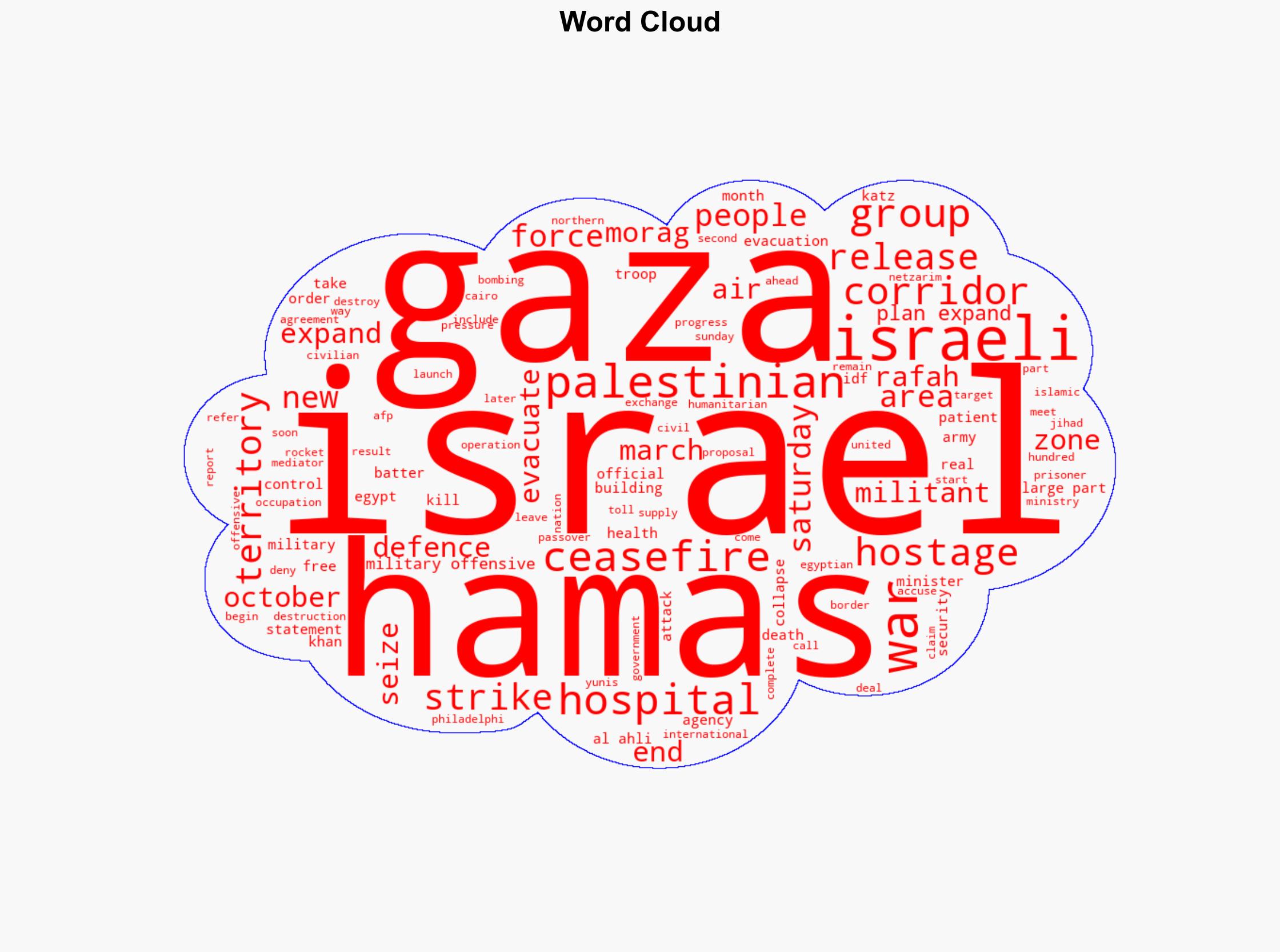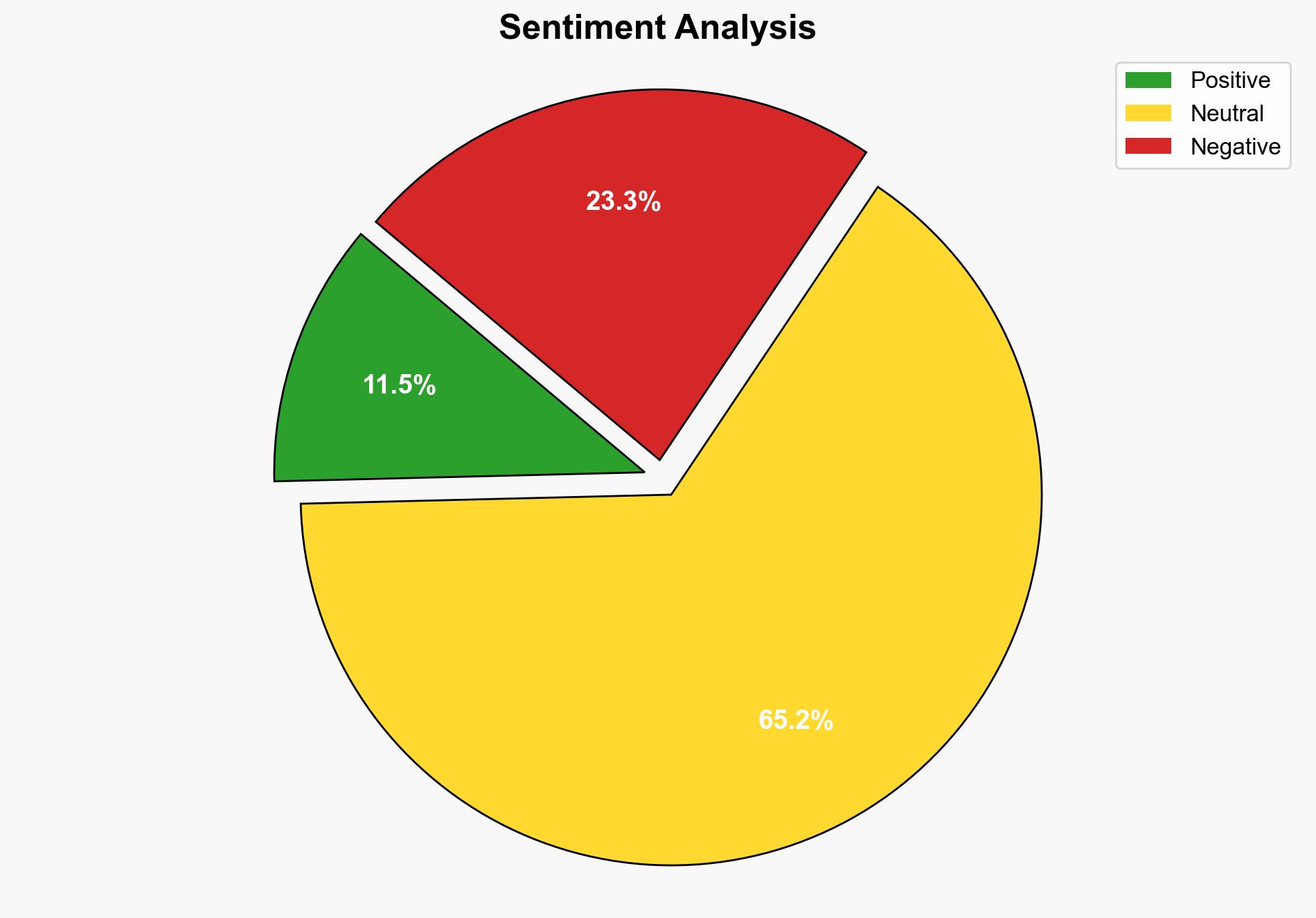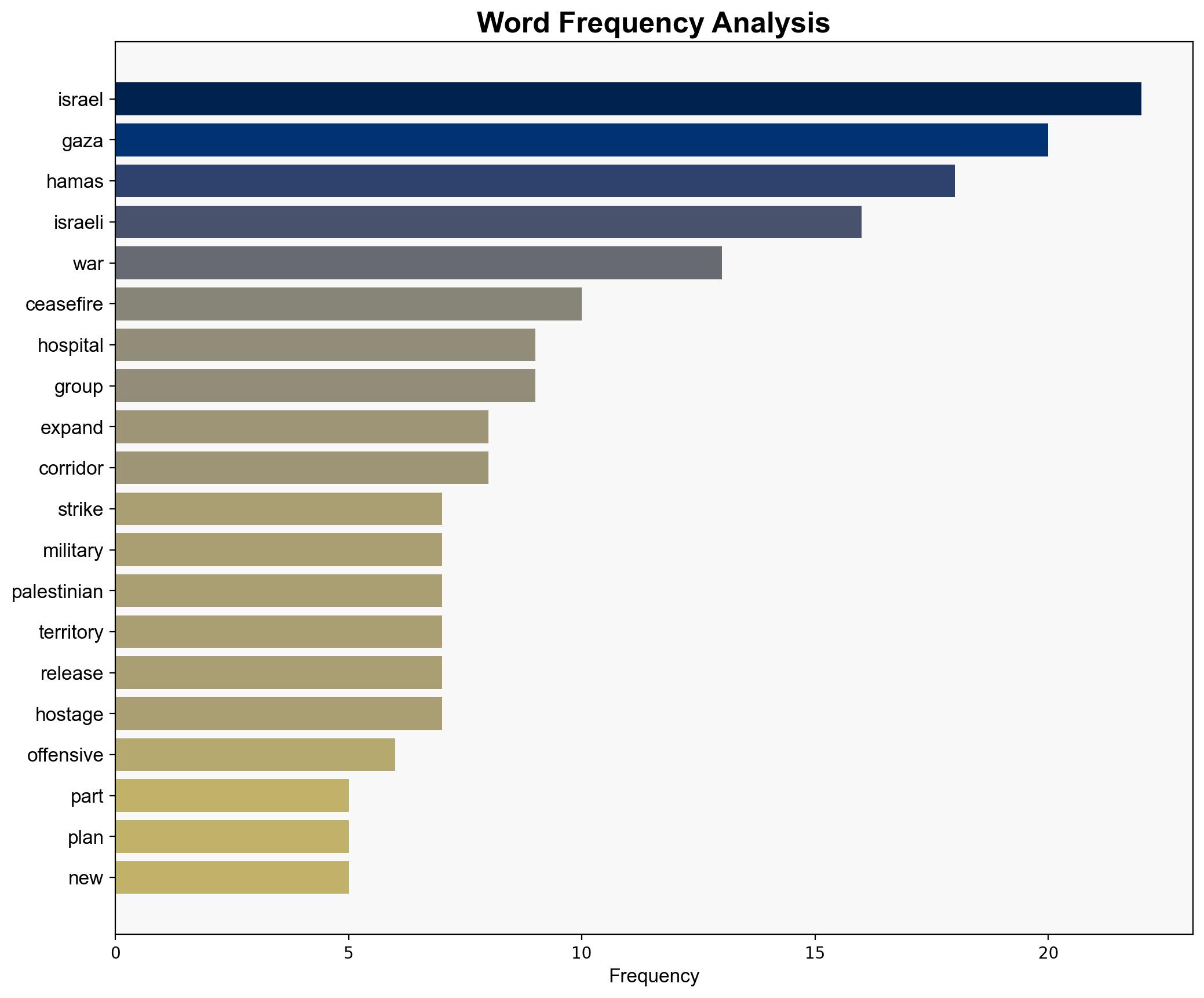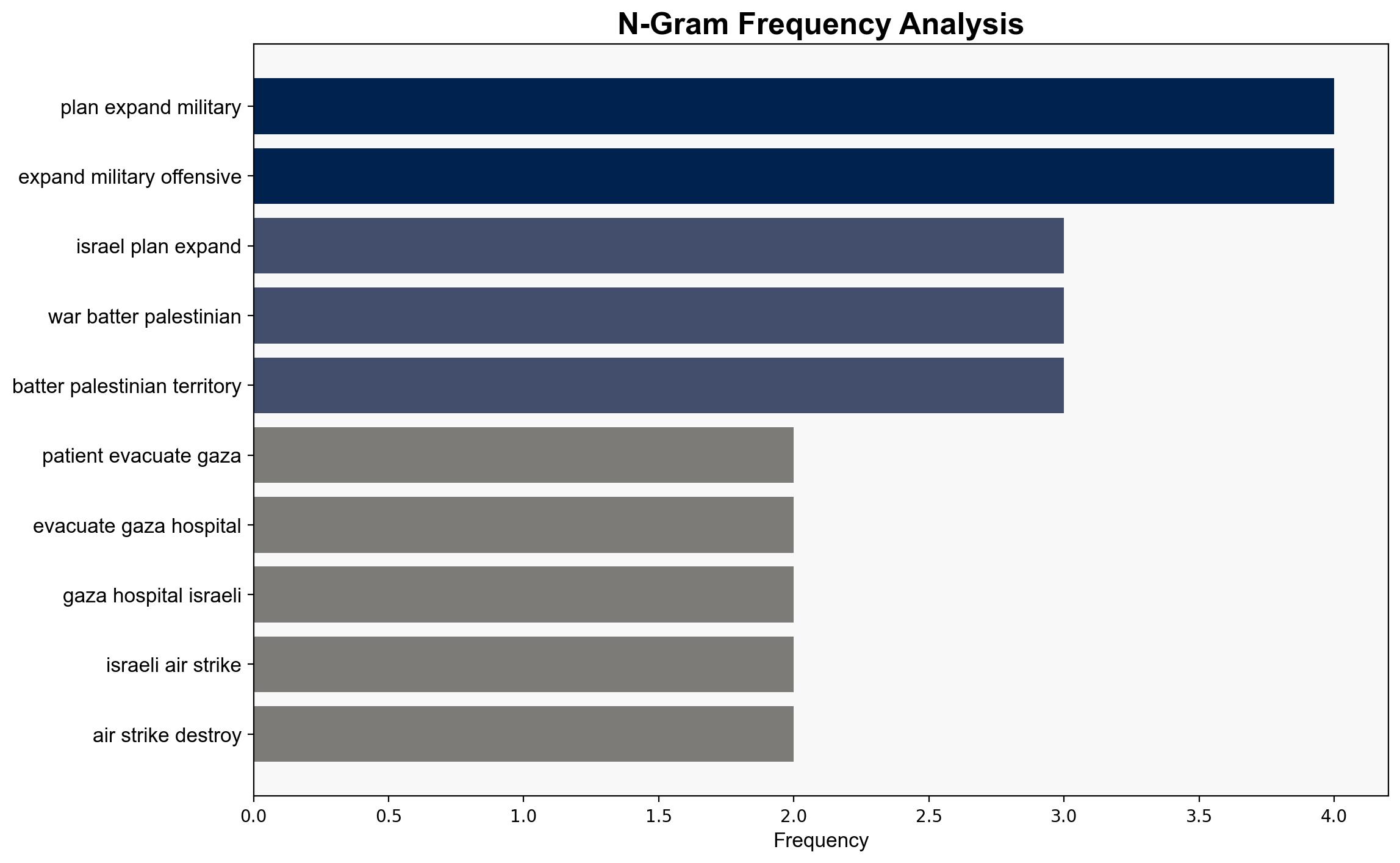Israel cuts off Gaza’s southern city of Rafah seizing key corridor – ABC News (AU)
Published on: 2025-04-13
Intelligence Report: Israel cuts off Gaza’s southern city of Rafah seizing key corridor – ABC News (AU)
1. BLUF (Bottom Line Up Front)
Israel has intensified its military operations in Gaza, seizing a strategic corridor in Rafah. This move is part of a broader campaign to exert control over significant portions of the territory. The recent airstrike on Al-Ahli hospital underscores the ongoing humanitarian crisis, with hospitals being targeted amidst accusations of their use by militant groups. The situation presents significant challenges to regional stability and international humanitarian norms.
2. Detailed Analysis
The following structured analytic techniques have been applied for this analysis:
General Analysis
The Israeli military’s strategy appears focused on dismantling Hamas’s operational capabilities by targeting infrastructure alleged to be used for military purposes. The destruction of hospital facilities, despite being protected under international law, highlights the complexities of urban warfare in densely populated areas. The humanitarian impact is severe, with significant damage to medical infrastructure and a rising civilian death toll. The accusations and counter-accusations between Israel and militant groups like Hamas and Islamic Jihad further complicate the conflict narrative.
3. Implications and Strategic Risks
The escalation in Gaza poses several strategic risks:
- Increased civilian casualties and humanitarian crises could lead to international condemnation and pressure on Israel.
- The destruction of critical infrastructure may exacerbate the humanitarian situation, leading to broader regional instability.
- Continued military operations risk drawing in neighboring countries and escalating into a wider regional conflict.
- The ongoing conflict may impact global energy markets and economic interests, particularly if it disrupts trade routes or escalates into a broader Middle Eastern conflict.
4. Recommendations and Outlook
Recommendations:
- Engage in diplomatic efforts to broker a ceasefire and address humanitarian concerns in Gaza.
- Enhance intelligence-sharing mechanisms to better understand and mitigate the use of civilian infrastructure for military purposes.
- Implement measures to protect civilian populations and infrastructure in accordance with international humanitarian law.
Outlook:
Best-case scenario: A negotiated ceasefire leads to a de-escalation of hostilities and the establishment of humanitarian corridors.
Worst-case scenario: The conflict escalates, drawing in regional actors and leading to a broader Middle Eastern war.
Most likely outcome: Prolonged conflict with intermittent ceasefires and continued international diplomatic efforts to resolve the crisis.
5. Key Individuals and Entities
The report mentions significant individuals and organizations, including Hamas, Islamic Jihad, and the World Health Organization. These entities play crucial roles in the ongoing conflict and its humanitarian implications.





